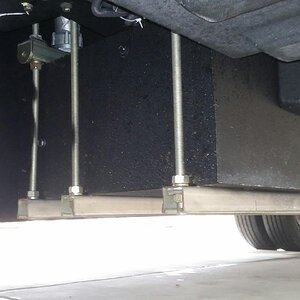bpaikman
RVF Supporter
- Joined
- Jun 25, 2020
- Messages
- 1,079
- Location
- Lake Jackson, Texas
- RV Year
- 2014
- RV Make
- Newmar
- RV Model
- Ventana LE 3436
- RV Length
- 35 feet
- Chassis
- Freightliner
- Engine
- Cummins 340 hp
- TOW/TOAD
- 2013 Subaru Crosstrek - manual, flat tow
- Fulltimer
- No
We used to have a diesel pusher and we enjoyed it so much, and since we travel the mountains a lot, and plan to be out of the road for weeks at a time we would like another diesel however I’m not liking the newer models. Has anyone ever bought a lower mileage 10-year-old pusher let’s say ...35,000 miles... I prefer the older models layout. Also they’re a lot cheaper.
Apologize to anyone that read my original post, I do voice to text because I have no good keyboard on this iPad. Before I post, I check it over, and it have it correct ...but evidently right before I hit post it decides it needs to make some changes! so there was a lot of garbled nonsense in the previous post, sorry.
We bought a old pusher when I was seven years old and sold it when it was 12 years old and it was still running great. We had minor repairs, But I kept hearing from my friends with new Rvs that they had more frequent issues. Not always covered by warranty. The only major expense we had was an air filter clean out system at about 60,000 miles
Apologize to anyone that read my original post, I do voice to text because I have no good keyboard on this iPad. Before I post, I check it over, and it have it correct ...but evidently right before I hit post it decides it needs to make some changes! so there was a lot of garbled nonsense in the previous post, sorry.
We bought a old pusher when I was seven years old and sold it when it was 12 years old and it was still running great. We had minor repairs, But I kept hearing from my friends with new Rvs that they had more frequent issues. Not always covered by warranty. The only major expense we had was an air filter clean out system at about 60,000 miles
Last edited:











